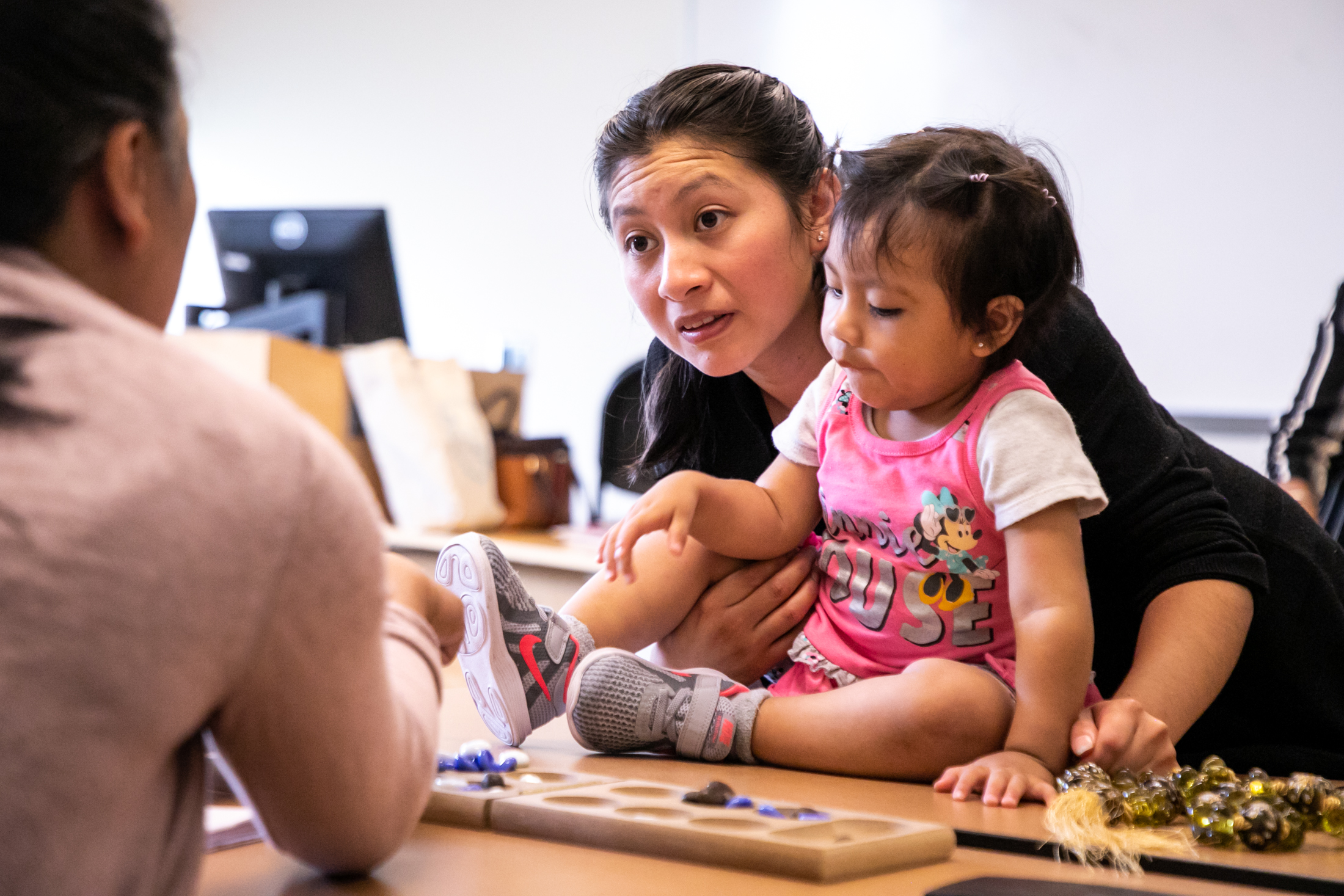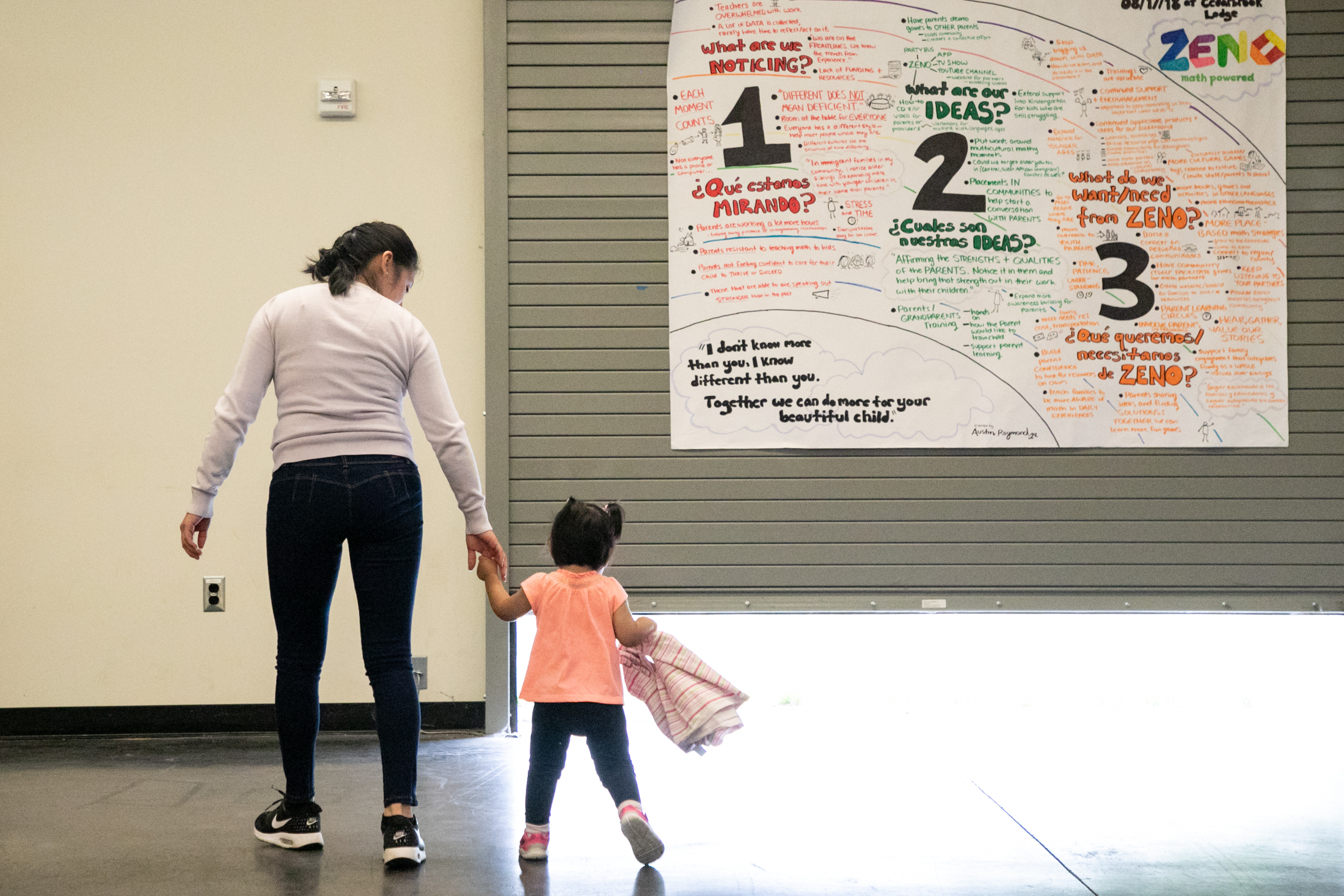The Murdock Trust invests in capacity-building projects at nonprofit organizations across the Pacific Northwest. When one grant helps create new opportunities and increases the impact of a nonprofit’s work down the line, we call it the ripple effect. The Stories of Impact series on our website helps shed light on the outcomes driven by some of the outstanding organizations the Murdock Trust has been fortunate to support in recent years.
By 2030, 96% of entry-level jobs paying a family wage in Washington will require postsecondary education. 62% will call for STEM literacy. But unless something changes, only 16% of high school graduates in Washington will be ready to meet these criteria. Washington STEM, a Seattle-based nonprofit, hopes to help make that change.
In 2017, the nonprofit applied for a grant to expand its Early Learning program through a new senior program director. Six years later, Washington STEM’s investment in early math proficiency is paying dividends across the state through deeper partnerships that are multiplying its impact.

Washington STEM
Washington STEM is a statewide education nonprofit leveraging STEM for social change, removing barriers to credential attainment, and creating pathways to long-term economic security for historically excluded students. They seek smart, scalable solutions to challenges preventing youth – especially students of color, rural students, those experiencing poverty, and girls and young women – from getting the STEM education they need to succeed.
“We work at the systems level from cradle to career,” says Migee Han, chief development and communications officer.
And data shows that beginning in the cradle is essential. In fact, high-quality early childcare is one of the best ways to set up a child for educational and life success.
“Research has shown that proficiency with early math concepts such as numbers and counting are powerful predictors of later learning, including later reading skills,” says Han. “When a student gets a strong start, has access to high-quality early learning and care, and is equipped with early math skills, they increase their chances of having a successful educational experience.”
However, in Washington, 32% of students entering kindergarten are not math-ready, and 49% of third graders fail to meet grade-level math standards. These numbers disproportionately include low-income children and those with all parents in the workforce. For many families, the biggest obstacle to math readiness is access to affordable early learning programs and quality childcare.
Investing in Early Learning
Knowing these difficult realities facing families across the state, Washington STEM decided to deepen its investment in solutions to early learning challenges.
“We knew from the research that proficiency in early numeracy was key for our youngest learners when we decided to make early learning, specifically early math, a priority in our work,” says Han. “To do this work, we needed to expand our team and hired a senior program director position to lead strategy development, communication and awareness activities, and program coordination in the area of early math.”
Through this new hire, the nonprofit hoped to develop an initiative that aligned with early math programs, unified resources, and expanded projects that had proven successful for families experiencing poverty, students of color, and rural students. The results were far more expansive than they anticipated.
“Receiving this grant and adding this position at Washington STEM launched a body of work that started as a thoughtful, strategic experiment and has evolved to a key cornerstone of our overall programmatic work,” says Han.

Multiplying Impact
Hiring a senior program director for early learning allowed Washington STEM to deepen collaboration with key partners.
“The early work that we started as a result of this investment launched a period of critical relationship building, alliance forging, and enabled us to then provide key support to our partners,” says Han. “One of the ripple effects over time as our work has matured is that our partnerships have grown in ways we did not anticipate with opportunities to serve in ways that have helped add to the sector and our community.”
For example, while there was much data on early learning in Washington, it was not always free, publicly available, accessible, or easily interpreted. Because of the relationships that the senior program director had begun to build, a broad coalition of regional and statewide partners urged Washington STEM and Washington Communities for Children to create a suite of reports and dashboards that would monitor, over time, how the system supports children in Washington ages 0-8. This resulted in a set of free, publicly accessible reports and data platforms called State of the Children that help regionalize data, summarize key issues, highlight possible solutions, and help educate employers and decision-makers.
The ripple effect didn’t stop there. According to Han, these reports aided in providing key foundational information which helped pass the Fair Starts for Kids Act in 2021, which helped make childcare and early learning more affordable to Washington families. It’s a perfect example of how investing in relationships can lead to collaborations that result in the system-level change a nonprofit aims to affect.
Thank you, Washington STEM!
Today, Early Learning is one of the three pillars of Washington STEM’s work, and collaboration continues to be key. Through partnerships with ten STEM networks across the state, the nonprofit continues to help find local and statewide solutions to the sector’s challenges. When it comes to their impact, two plus two equals more than four.
Washington STEM, thank you for helping prepare a future Washington workforce by investing in early learning. You are helping create a region where every individual – our youngest learners included – has an opportunity to thrive.







